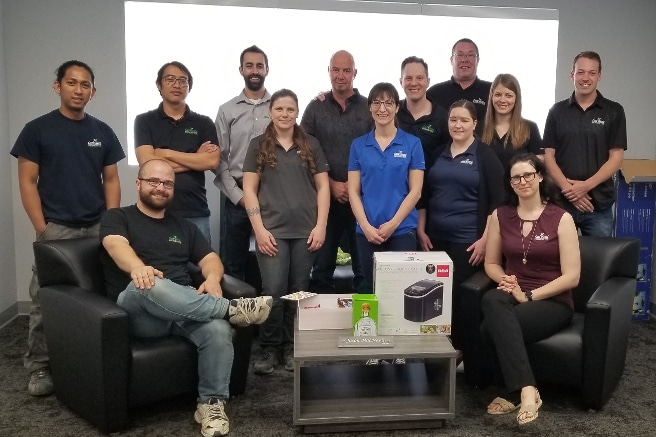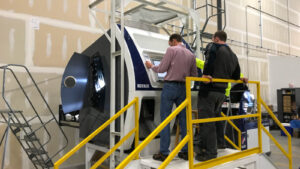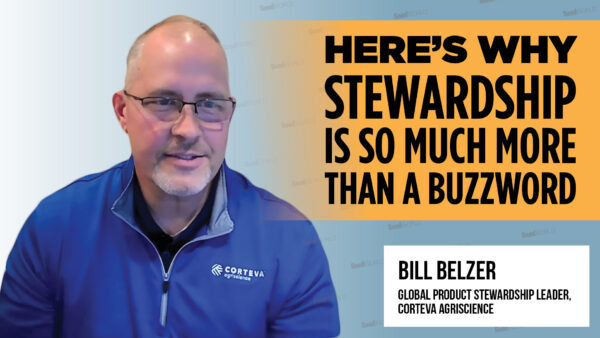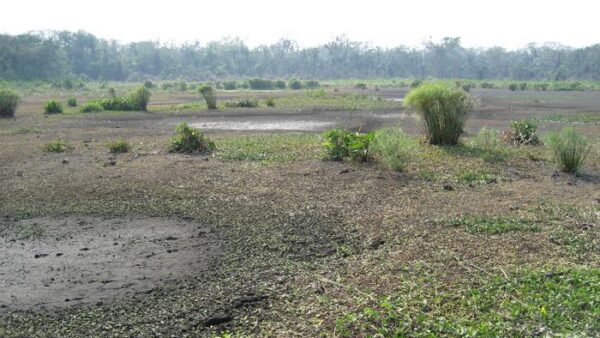As his company moves into larger quarters, the owner of Can-Seed Equipment says building on the strengths of those around him has been the secret to his success.
If you drive by Saskatoon’s Marquis Industrial area, you might notice it has a new occupant.
In June, Can-Seed Equipment officially opened its new, larger facility in what is becoming one of the city’s most visible industrial parks.
The company — which specializes in seed processing equipment — has grown multiple times since it was founded in 1984, and the latest incarnation is a result of a forward-thinking mindset that is helping Can- Seed boost its profile in a competitive industry, according to insiders.
When Jason MacNevin took over as the owner of the company in 2015, he says he immediately set his sights on growing the business and helping it to continue to move on to bigger and better things.
“We’ve spent the last four years trying to be very visible, to be in front of our customers,” he says. “That’s key — maintaining those relationships.”
The new 10,000 square-foot facility will celebrate its grand opening July 17 and is located at 810 66th Street East in Saskatoon close to Miller Avenue and Marquis Drive. It dwarfs the old facility located 30 minutes away, which clocked in at only 4,000 square feet.
It doubles the office size for the administrative team, now made up of 14 employees.
The warehouse represents a very modern storage facility for in-transit equipment along with inventory equipment.
Saskatoon’s Marquis Industrial area, where Can-Seed is now located, backs onto a main traffic vein which makes it easier for customers to access and for equipment to be loaded and unloaded. The old Can- Seed building was located in a very old industrial area which didn’t have great access for loading and unloading, MacNevin notes.
“To be successful in this business, you need to have a good inventory. Anytime a customer comes to you needing a piece of equipment and you don’t have it in stock, that costs them time and money.”
MacNevin was born and raised in Saskatchewan and built his career there. He started in distribution and over the years transitioned into operations.
Since he took over, Can-Seed has continued to make a name for itself as both an industry player and a good corporate citizen.

“While community and business go together and drive success, putting people first is key, and Jason crosses both thresholds and does both pieces so well,” says Melanie Lishchynsky, group consultant for Royal Bank of Canada. She has worked with MacNevin and Can-Seed Equipment on a number of community initiatives, including a charity golf tournament for the Easter Seals campaign in Saskatoon.
“There’s something about Jason that shows a level of care and concern beyond just business. It shows in his actions and what he supports.”
[tweetshare tweet=”When taking over a business there can be a tendency to not want to rock the boat too much, but he was very ambitious in his plans.” username=”germinationmag”]
Taking over a company like Can- Seed that’s been in business for over three decades was of huge appeal to MacNevin because it allows him to work with people to create a better environment for those around him. At every step of his career, he’s been tasked with putting together the right team, he says.
“I always try to utilize people for their strengths and build off their weaknesses. It’s challenging to ensure everyone is onboard with your vision. If they believe in it, it’s easy to bring people together,” he says.
That vision has been key to the continued success of Can-Seed since MacNevin took over, according to Aidin Milani, sales and development manager pulses & spices for Buhler Inc. based in Plymouth, Minn.
“Something unique about Jason is he has a different vision. He didn’t do things the same way they had always been done when he took the helm at Can-Seed. When taking over a business there can be a tendency to not want to rock the boat too much, but he was very ambitious in his plans,” Milani says.
“The changes he created within the company organization-wise were great. I’ve never seen such a major transition in so quick a time. That’s unique. He’s very bold and takes good risks. That’s how he’s been able to expand so quickly.”
Building relationships and customer service are his two priorities, with the intention being to help build capacity for seed processors.
“Capacity is the biggest issue in the industry right now, due to the acres being grown and bushels coming off the acres. We are focused on increasing capacity in-plant, which increases efficiencies, which increases profitability.”
But doing that isn’t simple, Milani adds, and says MacNevin’s approach makes Can-Seed very effective in working with its customer base.
“A part of this business is coping with the ups and downs of commodities, trade, pricing. It all changes so quickly. It’s important to understand your customers and be flexible. If someone wants to expand, you need to get them the equipment they need at an expedited rate. If there’s a slowdown in the market, you have to work with them to keep their needs met, but maybe in a different way that takes that slowdown into account,” Milani says.
“Jason is so flexible dealing with customers, understanding what they need and making it work for them. That’s critical. He helps them to get through their own business challenges and that makes all the difference.”












